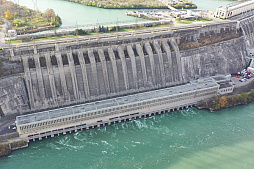After receiving the necessary documents (application form and project presentation), our team will try to review your request as soon as possible, and leading experts will offer the best options for project funding.
Investors, be they individuals planning their financial futures or large companies managing substantial portfolios, rely on a foundational principle: the accuracy of financial information.
This trust hinges on a time-tested practice known as auditing, which has become an integral part of the investment process.
If you are interested in financing a large investment project, contact ESFC Investment Group for details. Our team is ready to offer long-term financing, as well as provide comprehensive support for your project at various stages, including financial modeling, investment engineering, and much more.
We operate in many countries around the world, including EU countries, USA, Latin America, the Middle East, Central Asia, etc.
Concept of investment audit
Practice shows, that accurate and reliable information is a lifeblood of the successful investment process.It serves as the basis upon which all decisions are made. Without trustworthy financial data provided by audit firms, investors are essentially navigating in the dark, exposed to undue risk.
Investors rely on regular financial reports, earnings statements, and disclosures to assess the performance and prospects of investments. Accurate information empowers them to make informed decisions. Reliable financial data enables investors to evaluate the risk associated with investments. With accurate information, they can assess the potential for loss and take steps to mitigate it.
Accurate reporting promotes transparency, which is essential for trust in the markets.
This ensures that investors have access to complete and truthful data about the companies or assets in which they are investing. Obviously, this information cannot always be obtained by investors and their partners, since relevant and timely analytics are more accessible to professional audit teams.
In essence, the investment process hinges on the availability of accurate and reliable financial information. The quality of this information can significantly impact an investor ability to make sound decisions, manage risk, and ultimately achieve their financial goals.
An investment audit, also known as an investment analysis, is a process that involves a comprehensive exam and assessment of an individual's or organization's investment portfolio. The main objective of an investment audit is to evaluate the performance, risk, and overall effectiveness of the investments in the portfolio.
This assessment helps investors make informed decisions about their investment strategies, reallocate assets, and optimize their investment goals.
Below are some key aspects of an investment audit to consider.
Portfolio performance
As a part of investment process, audit assesses how well the investment portfolio has performed over a specific period, considering factors like returns, capital gains, and income generated. This performance is compared to relevant benchmarks and investment objectives.Risk assessment
The audit evaluates the risk profile of the investments in the portfolio. It considers factors such as asset allocation, diversification, and exposure to various asset classes to determine the level of risk and the potential impact of market fluctuations.Asset allocation
Asset allocation is a crucial aspect of an investment audit. It examines the distribution of assets within the portfolio, such as stocks, bonds, real estate, and other investment vehicles. The audit assesses whether the activity aligns with the investor's goals, risk tolerance, and time horizon.Cost analysis
Cost analysis, also known as cost evaluation, is a process of systematically examining and assessing the expenses associated with a particular project, process, or investment. The primary objective of cost analysis is to understand and manage the financial implications of various costs, with the goal of optimizing resource allocation, controlling expenses, and improving overall performance.Tax efficiency
Tax efficiency in the context of investments refers to strategies and practices that are designed to minimize the impact of taxes on investment returns. Maximizing tax efficiency can help investors retain a larger portion of their investment gains, increase after-tax returns, and achieve their financial goals more effectively.Investment goals
Investment goals are specific objectives or financial targets that individuals or organizations aim to achieve through their investment activities. Setting clear and well-defined investment goals is a fundamental step in the investment process because it provides a roadmap for making investment decisions and helps align investment strategies with one's financial objectives.Professional investment audit ensures that the portfolio aligns with the investor's financial goals and objectives. It involves reviewing the investor's time horizon, liquidity needs, income requirements.
Rebalancing and reallocation
Rebalancing and reallocation are investment strategies that involve adjusting the composition of the portfolio to align with an investor's financial goals, risk tolerance, and asset allocation targets. These strategies aim to maintain the desired risk-return profile of the portfolio over time.Based on the findings of the audit, adjustments may be recommended to rebalance the portfolio. This involves buying or selling assets to maintain the desired asset allocation and risk level.
Investment selection
As part of the investment process, audit may assess the suitability and performance of individual investments within the portfolio. It examines whether particular investments meet the investor's criteria and whether they are contributing to the portfolio's overall objectives.Investment strategy
Investment strategy is a well-thought-out and structured plan that guides an investor's decisions on how to allocate their financial resources in various assets to achieve their goals while managing risk. An effective investment strategy takes into account an individual's or organization's financial objectives, risk tolerance, time horizon, and other relevant factors.The audit reviews the investment strategy, including the use of active or passive management, investment style, and any changes that may be necessary to better align with the investor's goals.
Review of documents
Investment audit may also involve a review of investment statements, prospectuses, and legal agreements to ensure that all terms and conditions are understood and adhered to.Investment audits are typically conducted by experienced financial advisors, investment professionals, or individuals with expertise in investment analysis. These audits can be a valuable tool for investors, helping them make informed decisions to optimize their investment portfolios, maximize returns, and manage risk in line with their objectives.
Auditor and his main tasks
The first activities related to the verification and assessment of economic events and processes date back to ancient times.The word "audit" is related to the term audio and means "to listen."
The auditor acts as an inspector, consultant and support for the management of the entity in making appropriate management decisions, including decisions directly related to the investment process.
The historical aspects of audit have evolved over centuries as financial markets, regulations, and investor expectations have developed. The roots of auditing can be traced back to ancient civilizations where early record-keeping systems were established. Ancient Egyptians, for example, had scribes who maintained records of harvests and other activities.
With the rise of joint-stock companies during the 17th century in Europe, there was a growing need for investors to have confidence in the accuracy of financial statements. The Industrial Revolution brought about significant changes in the business landscape, and larger, more complex companies emerged.
In the early 20th century, professional auditing standards began to be established.
As financial markets became increasingly global, auditing standards and practices also evolved to become more internationally recognized. Large organizations like the International Auditing and Assurance Standards Board (IAASB) and the International Financial Reporting Standards (IFRS) Foundation have worked to harmonize auditing and accounting standards on a global scale. In the 21st century, auditors use advanced technologies and analytics to perform audits efficiently. They also focus on risk-based auditing and providing valuable insights to clients and investors.
Audit firm and its role in the organization are now no longer associated with the controller, who must identify violations and punish, but with a consultant who points out management weaknesses and the risks of the activities in order to improve its functioning.
This includes commercial, legal, informational, social, environmental and other aspects of investment projects.
An auditor or audit firm, as a participant in the investment process, is an observer, an analyst and has expert knowledge in the field of accounting, economics, management, information technology and law.
The auditor easily navigates the international environment and in a very short period of time collects information about the main activities of the organization, the legal basis of the client’s investment activity, basic management processes and methods used in the organization, accounting principles, information processes, personnel policies and much more. Unlike traditional business audits, which typically last 1-2 weeks, an audit firm's involvement in large-scale investment processes can be much longer depending on the specific task.
The auditor's task is to skillfully and correctly recognize and analyze the collected information in order to identify the main business risks, errors and shortcomings in management processes and information flow in the organization, assess the strengths and weaknesses of a specific investment project and related processes, as well as detect improperly recorded events in the financial and accounting system.
After conducting audit activities, the company issues a conclusion containing recommendations aimed at improving activities and minimizing identified risks in the implementation of the capital-intensive project.

Types of audits in the investment process
Auditing in the investment process serves as a critical safeguard, providing assurance and transparency to stakeholders.There are several types of audits, each with a unique role in ensuring that investment activities are conducted in a reliable, compliant, and transparent manner. The main types of audits in the investment process include financial, compliance and internal audits.
Financial audit
Financial audits are the most well-known and widely conducted type of audit in the investment process. They focus on examining a company's financial statements, transactions, and accounting records to ensure that they present a true and fair view of the company's financial position. The primary purpose of financial audits is to provide investors, creditors, and other stakeholders with assurance that the financial information they rely on is accurate and free or fraud.Financial audit usually reviews income statements, balance sheets, cash flow statements, and accompanying notes. Auditors assess the adherence to certain accounting standards, verify the accuracy of financial records, and test internal controls.
Internal audit
Internal audits are conducted by an organization's internal auditors, who are independent of the company's financial reporting and operations. Their primary role is to evaluate and improve the effectiveness of internal controls, risk management processes, and the efficiency of the business operations. Internal audits serve as a proactive measure to identify and address operational and financial risks, ensuring that organization's processes are operating efficiently and in compliance with internal policies and procedures.Internal audit in the investment process covers a broad range of activities, including financial operations, compliance with company policies, and risk assessments. It focuses on enhancing operational effectiveness and identifying opportunities for process improvements.
Compliance audit
Compliance audits are specifically designed to assess whether an organization or entity is adhering to specific laws, regulations, policies, or contractual agreements. These audits focus on evaluating the organization's compliance with external requirements. The primary purpose of compliance audits is to ensure that the organization is operating within the framework of relevant regulations, standards, and contracts, thereby mitigating legal and regulatory risks.Compliance audit in the investment process focused on verifying that the organization is following specific laws, industry regulations, contractual agreements, and internal policies. This type of audit is essential for industries that are highly regulated, such as the financial sector and healthcare.
Unique roles of each type of audit include the following:
• Financial audits primarily provide external stakeholders with confidence in the accuracy and reliability of financial statements, enabling investors to make informed decisions. They focus on financial transparency and adherence to accounting standards.
• Internal audits are instrumental in improving internal controls, risk management, and operational efficiency. They help organizations identify and address internal weaknesses and process inefficiencies. While they may not have a direct impact on external investors, they contribute to overall organizational effectiveness and risk management, indirectly benefiting investors by reducing operational and compliance risks.
• Compliance audits ensure that organizations follow laws, regulations, and industry standards. They play a vital role in preventing legal and regulatory issues and safeguarding an organization's reputation. For investors, knowing that a company complies with laws and regulations provides assurance and minimizes the risk of unforeseen legal complications.
In practice, each type of audit in the investment process serves a distinct purpose. Financial audits provide external transparency, internal audits enhance operational efficiency and risk management, and compliance audits ensure adherence to legal and regulatory requirements. Together, these options work to protect investors and maintain the integrity of markets.
Auditing techniques and procedures
Professional auditors employ a range of techniques and procedures to systematically examine an entity's financial information and assess the reliability and accuracy of business information. These techniques are crucial for providing assurance to investors, stakeholders, and regulators.Table: An overview of auditing techniques and procedures in the investment process
|
Areas
|
Purposes
|
Procedures
|
| Risk assessment | Auditors begin by conducting a risk assessment to identify and evaluate the risks associated with the financial statements. This process helps auditors determine where they should focus their audit efforts. | Auditors gather information about the entity, its industry, and the economic environment in which it operates. They assess the internal control system to understand the processes and controls in place. This information guides the development of the audit plan. |
| Materiality assessment | Materiality is the concept of determining whether a misstatement in the financial statements could influence the economic decisions of users. Auditors set materiality thresholds to determine the significance of misstatements. | Auditors consider quantitative factors (a percentage of total assets or revenue) and qualitative factors (the impact on loan covenants, regulatory compliance, or investor decisions) to determine materiality thresholds. |
| Testing controls | Auditors comprehensively assess the effectiveness of an entity's internal controls to identify areas with a higher risk of material misstatement. Effective controls reduce the risk of errors and fraud. | Auditors conduct tests of controls to determine if the internal control system operates as designed. They may perform walkthroughs, inquiry, observation, and examination of documents to evaluate control effectiveness. |
| Substantive procedures | Substantive procedures are used to detect material misstatements in the financial statements. These complex procedures are performed directly on the accounts or transactions. | Auditors use substantive procedures such as substantive analytical procedures (ratio analysis, trend analysis) and substantive tests of details (verifying account balances, examining transactions). They also assess the valuation of assets and liabilities of the company. |
| Sampling techniques | Sampling is used to draw conclusions about a population (a group of transactions) by examining a representative sample. This is practical when it's not feasible to examine every item in a population. | Auditors select a sample of items and perform tests on those items to estimate the group's characteristics. Sampling techniques ensure that the sample is statistically valid and representative of the entire population. |
| Analytical procedures | Analytical procedures involve the comparison of financial information with expectations developed by the auditor. These procedures help identify unusual or unexpected trends, fluctuations, or relationships that may indicate misstatements. | Auditors compare current financial data with prior periods, industry benchmarks, and the entity's budget or forecasts. Significant variances trigger further investigation. |
| Development of documentation | Proper documentation is crucial for the audit process as it provides a clear record of the auditor's work, including the procedures performed, evidence obtained, and conclusions reached. | Auditors maintain comprehensive audit documentation, including working papers, reports, and memoranda, to demonstrate their compliance with auditing standards and provide transparency for stakeholders and regulators. |
As part of the investment process, the aforementioned auditing techniques and procedures play a critical role in evaluating the reliability of financial information, detecting potential misstatements and fraud.
Auditors use a combination of risk assessment, substantive procedures, analytical procedures, and comprehensive documentation to fulfill their responsibilities.




























